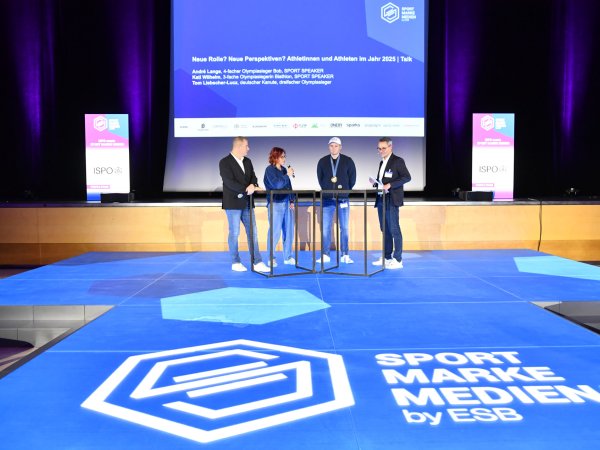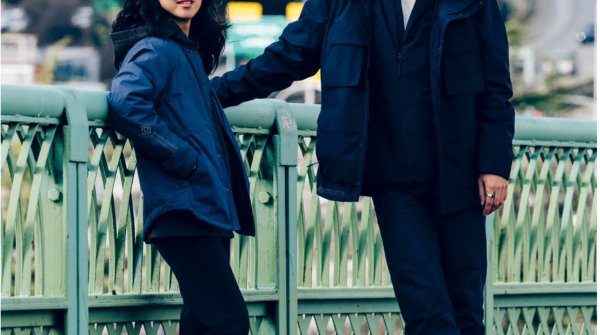Reaching the Olympic podium is only the half story for a lot of athletes. When the crowd departs and the lights go off, the true test frequently occurs. Lifelong career changes aside, there’s much deeper and darker waters to explore.
Former athletes Kati Wilhelm, André Lange and Tom Leibscher offer an honest and deeply human look at the transition from Olympic podiums to everyday life and how they have to get through issues like maintaining your relevance, money problems and the most difficult and existential of all: life after sport. Gold medals aside, they all have something to say about the best strategies to approach these issues and raise important questions about how Germany supports its athletes during and after their careers.
From better school sports programs to sustainable funding structures, their reflections show that the future of competitive sports depends just as much on grassroots systems as it does on national pride. Athletes shouldn’t have to sacrifice long-term stability for short-term glory. As they call for stronger recognition of sport’s societal value, whether through youth development, social integration, or international visibility, it’s clear that more needs to be done. Their journey doesn’t end at the finish line and neither should our efforts to support them. If Germany truly hopes to host the Olympics again, it must first build a foundation that honors and uplifts its athletes beyond their medals.
Before athletes even think about what comes after their final race or match, there's another challenge they often face: visibility. Recognition and personal branding deeply impact what opportunities follow a sports career.
Kati Wilhelm, the 3-time Olympics champion in biathlon, put it simply
You have to be able to determine to a certain degree how popular you will be.
She explained that beyond medals, public image plays a role in sponsorships and long-term visibility. Her red hair became part of her identity and a reflection of her drive and individualit.
Tom Liebscher, 2-time Olympic canoe sprint champion, highlighted how summer sports athletes have to present themselves more with a story or passion. With less television coverage compared to winter sports, they often rely on authenticity to stand out and build their value for sponsors.
Visibility can shape whether an athlete finds speaking opportunities, brand partnerships or media relevance after retirement. Especially if athletes aren’t in the spotlight or part of a widely followed discipline, as André Lange, 4-time Olympics bobsled champion, noticed
There are sports where it’s easier and others where it’s more difficult.
Visibility may not win medals, but it opens doors. And for many athletes, that's what carries them from sport into what comes next.
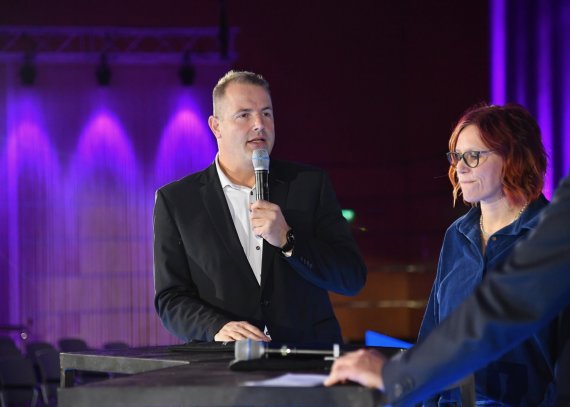
Transitioning from the high of competition to everyday life isn't easy. Kati Wilhelm recalled that shortly after retiring, she received an invitation that set the course for her next chapter and launched her career as a speaker
Someone came to me and said companies like to benefit from the experiences of successful athletes. Can you imagine just passing on your knowledge? [...] “And now, I’ve been doing it for a few years.
André Lange shared something similar. He believes that before jumping into the next big thing, athletes should be given space to land. For him, that included going back to school after retirement. He explained
An athlete should really first deal with leaving the sport and going into a completely normal life.
Both these champions emphasized the importance of preparation, whether it’s education or simply figuring out what you enjoy beyond your sport. Success opens doors, but it doesn't automatically lead to a second career. Kati Wilhelm added
You need a media presence, a good topic, and, of course, success.
Tom Liebscher, who represents the younger generation, noted how things are a bit different now thanks to social media. He explained how it allows him to tell stories beyond just results and helps maintain visibility, even in the quieter months. But the underlying challenge remains the same: transitioning from athlete to something else isn’t easy and it doesn't come with a map.
You want to discover more inspiring stories?
Then don’t miss your chance to meet internationally renowned creators live at the ISPO Creator Summit where you can ask them everything in our curated live talks.
One surprising part of the conversation was how visibility differs across seasons. As Tom Liebscher explained, winter athletes enjoy natural TV time. People are cozy on the couch and watching their favorite competitions. He too, was watching winter sports all day.
But as a summer athlete, things are different. Because his competitions don’t have the same built-in media audience, he has to work harder to build relationships with sponsors. It's less about screen time and more about connection. Tom Liebscher noted
We have to present ourselves more with a story or simply with a passion.
Even with three Olympics gold medals, it took months for him to start seeing marketing opportunities. That delay is telling. Despite enormous success, summer athletes in Germany often struggle to convert performance into visibility, or financial gain. Tom Liebscher remembered
We only started talking about the Olympic victory three months later.
Kati Wilhelm agreed that success alone isn't enough. Especially in “fringe" sports or those without a huge media platform. She pointed out hat sponsorship at the Games is heavily restricted
With an Olympic gold medal in many edge sports, you can't buy anything.
The lack of commercial exposure during the biggest moments means athletes miss out on their most valuable window for visibility. The conversation highlighted how structural imbalances between sports affect what comes after victory and why visibility doesn't always translate to value.
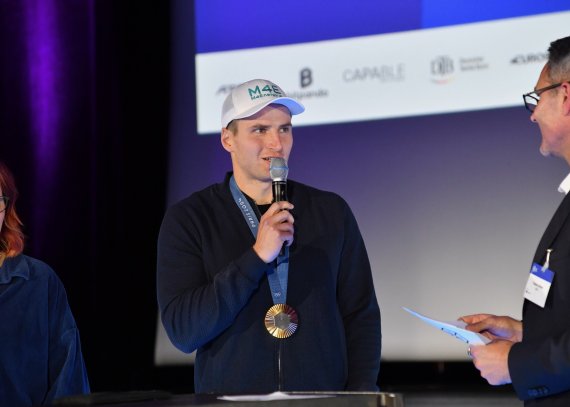
Much of the discussion turned toward how politics and policy shape the athlete journey. André Lange said plainly
Without the support of the economy, it won't work.
But beyond corporate funding, both André Lange and Kati Wilhelm called for stronger political commitment to sport.
She noticed out the lack of a strong lobby for sports in Germany. Whencomparing Germany to countries like France and the UK, where political will translated into Olympic readiness, Kati Wilhelm pointed out
Sport simply does not have the lobby. [...] They did a lot in funding, also in social insurance for athletes.
For many athletes in Germany, access to health coverage or pensions is tied to employment with government institutions. She added
We were both employed by authorities but not everyone gets the pleasure.
Kati Wilhelm believes this lack of security discourages young athletes from pursuing elite sport. Without structural support, even the brightest stars can fall through the cracks. She asked
Why should they face all these challenges, give up a lot, and end up with nothing at 30?
Tom Liebscher also raised the issue of long-term planning, mentioning his recent meeting with the German chancellor. He shared his concern for the future of sport and told the chancellor directly:
We need Olympic Games as a goal. To find new funding, make new money, and give the whole system momentum.
Their unified message was clear: Germany must do more at the political level to support its athletes, not just during the spotlight years, but through education, funding, and real post-career planning.
You want to be the first to find out about the latest trends in the sports industry?
Then subscribe to our free newsletter now and always be one step ahead.
Kati Wilhelm, known for her red hair during her racing days, reflected on how image shapes opportunity but only if it aligns with authenticity. She stressed that not every athlete is comfortable in the public eye, and that’s okay. She explained
You have to stay authentic. You can't adjust. [...] You can definitely train a little, but it won’t turn someone into a showman.
She explained that while her red hair helped with recognition, it wasn’t a strategy. But her success came from grit and ambition and any media advantage was secondary. Kati Wilhelm stated
It certainly fit my mentality. But I wasn’t successful because I dyed my hair red.
Still, image does matter. André Lange agreed that marketing opportunities differ across sports and personalities. He noted that team sports can be even more challenging
Unless very special characters manage to get out of the system, it’s hard to stand out.
Tom Liebscher emphasized the importance of being active, telling your story and showing more than just medals. He believes athletes need to help future generations by speaking up and advocating for the sport system
You present yourself and also fight for the matter.
Modern athletes are expected to be more than competitors, they’re expected to be brands, role models and spokespeople. And that expectation adds pressure, especially when you're still trying to define yourself after retirement.
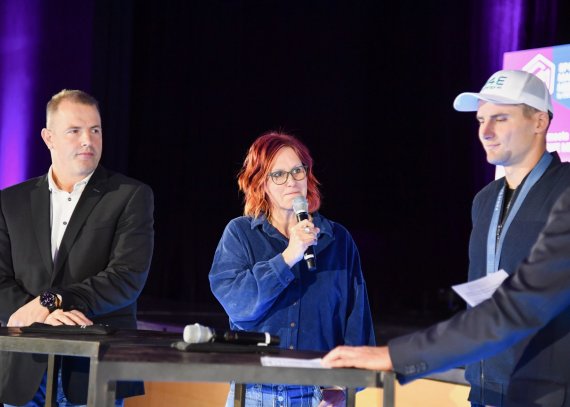
Beyond elite sport, the athletes raised concern over declining physical activity among children. Kati Wilhelm quoted WHO statistics, saying
31% of adults worldwide move too little. For children, it’s 80%.
She stressed that even walking counts but kids aren’t even getting that. She believes schools play a key role in reversing this trend. André Lange replied
We should reactivate our school sport.
He explained that kids who are active not only stay agile but also perform better academically. André Lange added
In the end, some become competitive athletes and that’s something millions of people can celebrate.
Kati Wilhelm called for sport to be seen as a social necessity, not a luxury. Yet, many schools lack even basic PE classes. She said
Sport conveys values, discipline, will to perform, accepting defeat. These are things children need.
All three athletes were united in saying the solution isn’t complicated: it just needs leadership. Kati Wilhelm added
If it is wanted from above, then it will be relatively easy for us.
Their message is clear. Sport isn't just about medals, it's about health, discipline, confidence, and community. And without early access in schools, we risk losing the next generation before they even begin.
As the panel closed, the athletes were asked one final question: “Should Germany apply for the Olympic Games?” The response from all three athletes was immediate. “Yes,” they said in unison.
Tom Liebscher sees the Games not only as a competitive event but as a symbol that inspires younger athletes and signals national commitment. Kati Wilhelm agreed but emphasized the need for a clear, thoughtful concept. What’s missing is the push from the top that says sport matters not just to athletes, but to society. André Lange echoed that sentiment, reminding the audience that it’s not a side project but a national asset. He said
Sport is part of our constitution.
The athletes were hopeful but realistic. They understand the challenges, from budgets to politics, but they believe the time is right for Germany to take that step. Not just to host an event, but to reignite a national movement around sport.
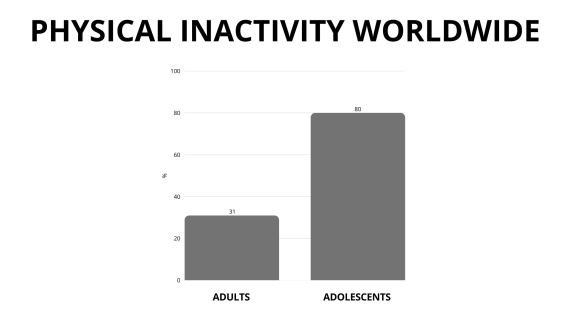
Meet the people shaping tomorrow’s sports business. At SPORT BRAND MEDIA at ISPO 2025, you’ll explore new models of sponsorship, athlete marketing and youth development while connecting with leading voices from media, brands, sponsors, and athletes. The conference will take place on 01 and 02 DEC.
Olympic gold is not the finish line, it’s often the start of a more complex journey. Former Olympians Kati Wilhelm, André Lange, and Tom Liebscher shared how they navigated the challenges of life after sport and what lessons the business world can draw from their experiences:
- Visibility as currency: All three agreed that medals alone don’t guarantee relevance. Public image and personal branding shape sponsorships, speaking opportunities, and long-term value. Wilhelm built her second career as a speaker, leveraging authenticity rather than strategy. Liebscher, representing a younger generation, uses social media storytelling to stay visible.
- Transition planning: Lange emphasized the need for space and preparation before jumping into new roles. He returned to education, showing that reinvention requires both patience and structure. Wilhelm echoed that success must be combined with clear topics and media presence to translate into business opportunities.
- Structural barriers: The panel highlighted gaps in Germany’s system—from limited sponsorship windows to the lack of political support for athletes’ long-term security. Without stronger investment in education, healthcare, and visibility, too many athletes risk falling through the cracks.
- Relevance for business: Their stories underline that resilience, adaptability, and authenticity are transferable skills. Companies can learn from athletes how to manage transitions, build sustainable brands, and connect with audiences through purpose-driven narratives.
For sports business, the message is clear: supporting athletes beyond their competitive peak is an untapped opportunity for innovation, inspiration, and authentic brand partnerships.

 Sports BusinessSki Mountaineering Goes Olympic: What Milano-Cortina 2026 Means
Sports BusinessSki Mountaineering Goes Olympic: What Milano-Cortina 2026 Means
- ISPO awards
- Mountain sports
- Bike
- Design
- Retail
- Fitness
- Health
- ISPO Job Market
- ISPO Munich
- ISPO Shanghai
- Running
- Brands
- Sustainability
- Olympia
- OutDoor
- Promotion
- Sports Business
- ISPO Textrends
- Triathlon
- Water sports
- Winter sports
- eSports
- SportsTech
- OutDoor by ISPO
- Heroes
- Transformation
- Sport Fashion
- Urban Culture
- Challenges of a CEO
- Trade fairs
- Sports
- Find the Balance
- Product reviews
- Newsletter Exclusive Area
- Magazine
